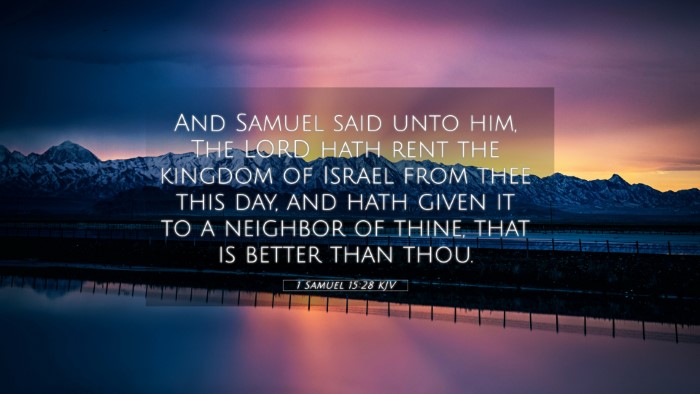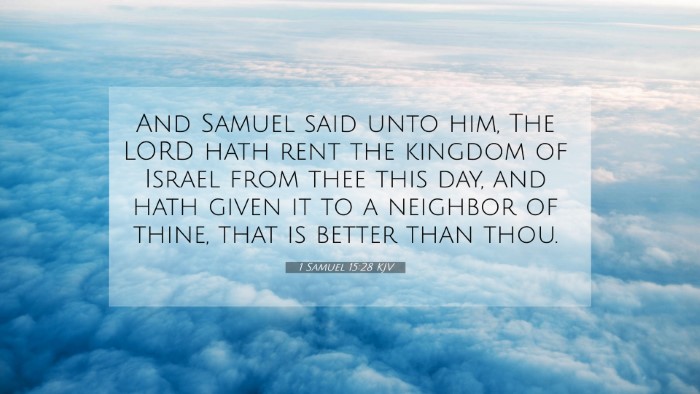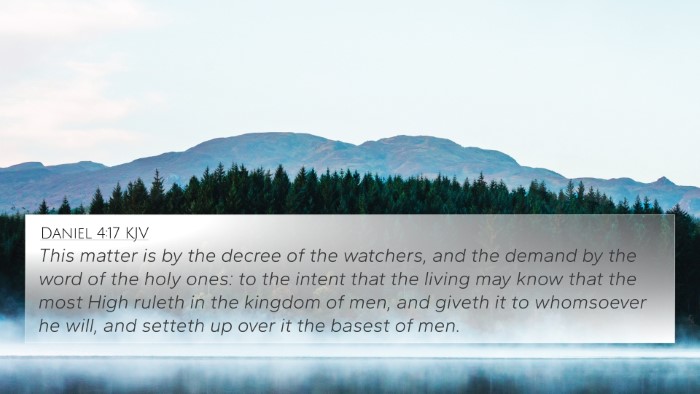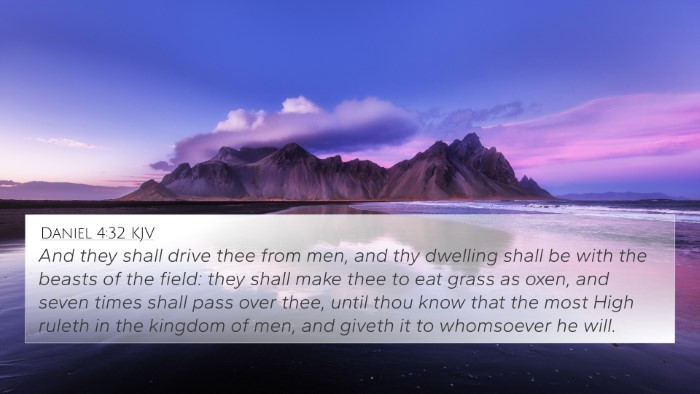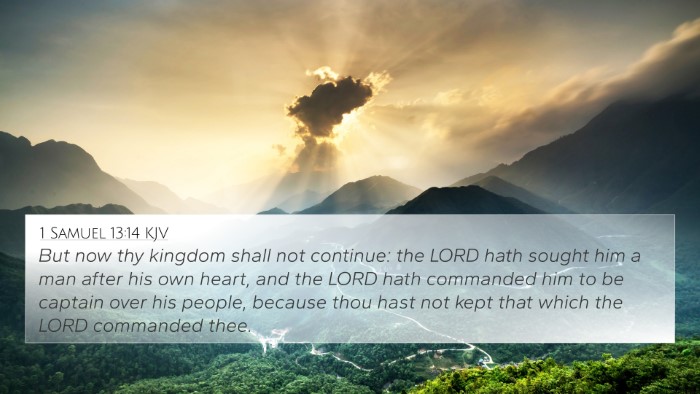Understanding 1 Samuel 15:28
Verse: "And Samuel said unto him, The LORD hath rent the kingdom of Israel from thee this day, and hath given it to a neighbour of thine, that is better than thou." (1 Samuel 15:28 KJV)
Summary of Meaning
This verse serves as a pivotal moment in the biblical narrative, marking the rejection of King Saul by the Lord due to his disobedience. Samuel, the prophet, delivers this profound message that God has taken the kingdom from Saul and given it to someone better, foreshadowing the rise of David. This moment illustrates the serious consequences of failing to follow God's commands and emphasizes God's sovereignty in choosing leaders.
Insights from Public Domain Commentaries
Matthew Henry's Commentary
Henry emphasizes the weight of God's judgment in this verse, highlighting that it is not just the loss of a kingdom, but the loss of divine favor. He outlines the important themes of God's justice and mercy, indicating that God removes Saul not just for failure, but for the purpose of raising up a more righteous leader. Henry also warns of the dangers that come with pride and disobedience, noting that Saul's arrogance preceded his downfall.
Albert Barnes' Notes
Barnes elaborates on the words "the LORD hath rent," which signify a severance of Saul's connection to the kingship, illustrating how God actively intervenes in governance. He also points out that this transfer of power indicates a divine plan that transcends human understanding. Barnes points to God's choice of a "neighbour," signifying that God’s selection works through divine preference, elevating David as an exemplar of virtue and capability.
Adam Clarke's Commentary
Clarke interprets this verse as a direct proclamation from God through Samuel. He focuses on the term "better than thou," suggesting that God doesn't merely select rulers based on lineage or appearance, but rather, He seeks those who are faithful and obedient. Clarke references the broader context of Saul's failures and links this moment to theological themes about divine retribution and grace, stressing God's desire for a leader aligned with His purposes.
Thematic Connections and Cross-References
- 1 Samuel 13:14 - The Lord has sought a man after His own heart.
- 1 Samuel 16:1 - God instructs Samuel to anoint David as king.
- 2 Samuel 7:15-16 - God’s everlasting covenant with David's lineage.
- Psalms 78:70-72 - God chose David to lead His people with integrity.
- 1 Chronicles 10:13-14 - The reasons for Saul's rejection as king.
- Matthew 21:43 - The kingdom taken from the unfaithful and given to another.
- Acts 13:22 - God attests that David is a man after His own heart.
Bible Verse Connections
1 Samuel 15:28 offers a glimpse into God's sovereignty in leadership decisions. This verse links to many others throughout Scripture that discuss themes of divine judgment, the importance of obedience, and the characteristics of Godly leaders. The following points of comparison can enhance our understanding:
Cross-Referencing Biblical Texts
When studying 1 Samuel 15:28, one should utilize tools for Bible cross-referencing, as they provide insight into how verses reinforce or contrast with each other. For instance:
Identifying Connections
By examining the connections between 1 Samuel and other books, we see a consistent narrative on the qualities God seeks in His leaders. This idea is echoed in:
- Deuteronomy 17:15 - Guidelines for choosing a king.
- Proverbs 28:15 - Comparisons of wicked and righteous rulers.
- Romans 13:1 - The importance of submitting to authorities ordained by God.
The Importance of Obedience
Josephus and other historical commentators also discuss similarities between Saul and subsequent biblical figures who faced God's judgment due to disobedience, demonstrating that this theme resonates throughout scripture.
Conclusion
The themes encapsulated in 1 Samuel 15:28 continue to echo throughout the scriptures, offering profound lessons on leadership, obedience to God, and the inevitable consequences of turning away from divine mandates. By linking these verses and utilizing them in a broader theological context, one gains a fuller understanding of the relational dynamics between God and His people.

